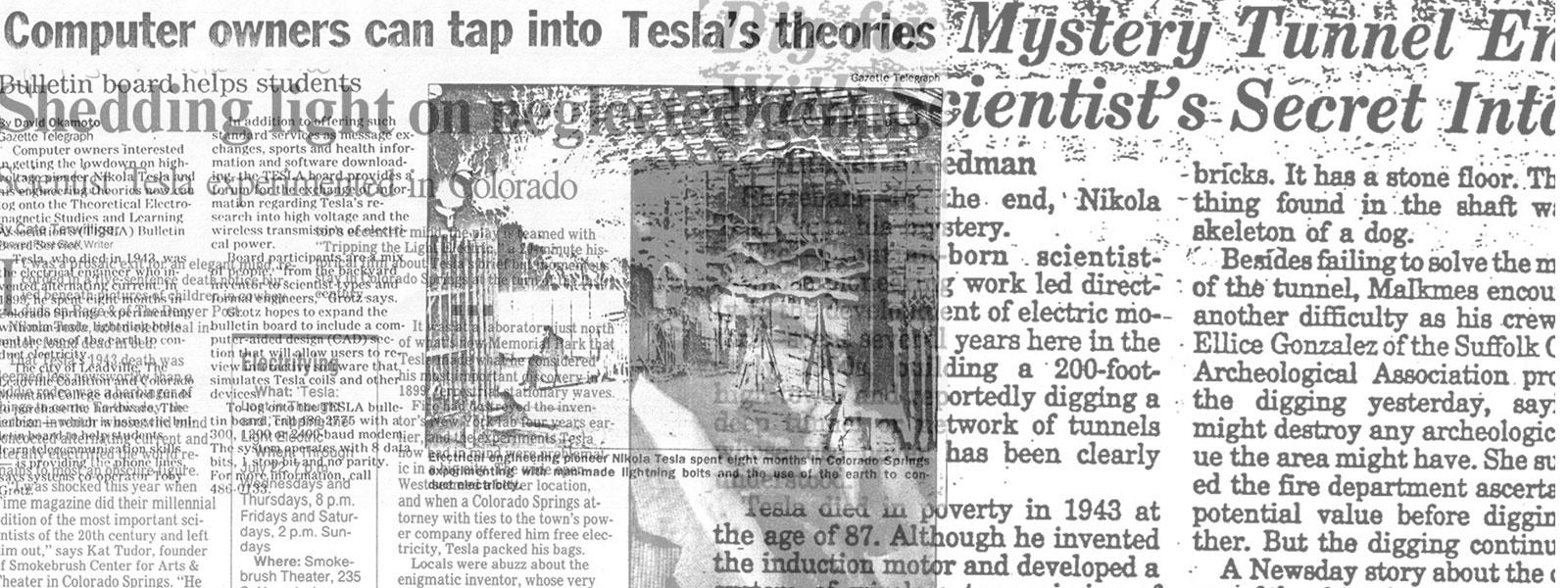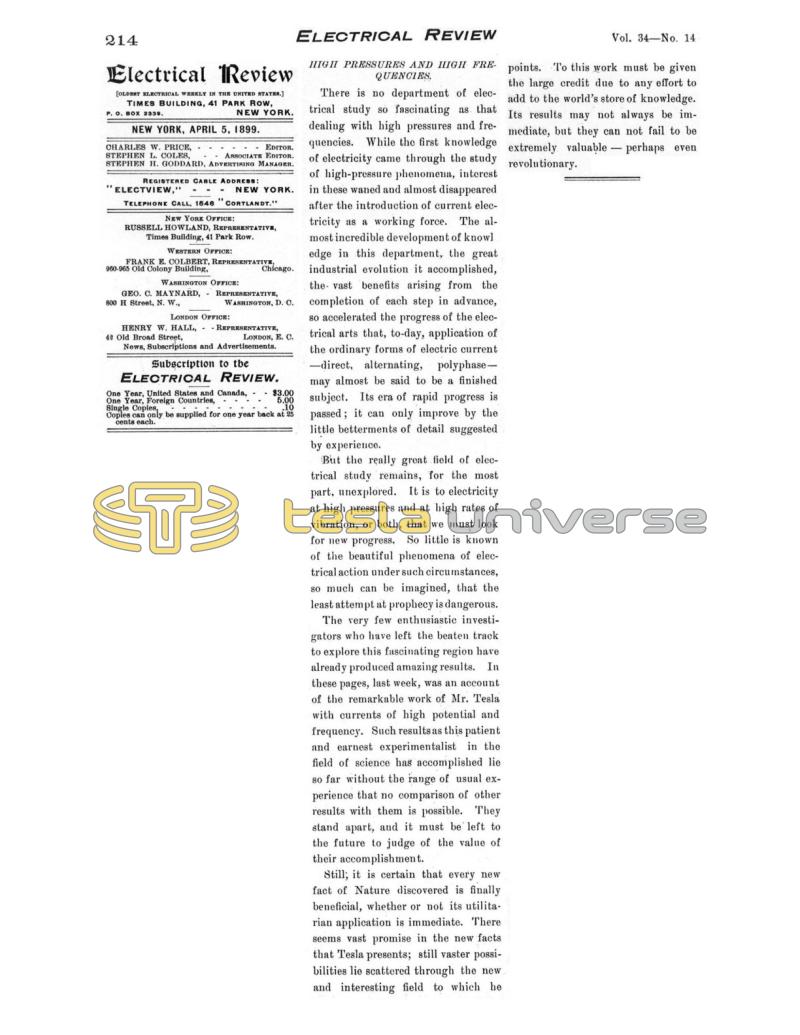
Nikola Tesla Articles
High Pressures and High Frequencies
There is no department of electrical study so fascinating as that dealing with high pressures and frequencies. While the first knowledge of electricity came through the study of high-pressure phenomena, interest in these waned and almost disappeared after the introduction of current electricity as a working force. The almost incredible development of knowledge in this department, the great industrial evolution it accomplished, the vast benefits arising from the completion of each step in advance, so accelerated the progress of the electrical arts that, to-day, application of the ordinary forms of electric current - direct, alternating, polyphase - may almost be said to be a finished subject. Its era of rapid progress is passed; it can only improve by the little betterments of detail suggested by experience.
But the really great field of electrical study remains, for the most part, unexplored. It is to electricity at high pressures and at high rates of vibration, or both, that we must look for new progress. So little is known of the beautiful phenomena of electrical action under such circumstances, so much can be imagined, that the least attempt at prophecy is dangerous.
The very few enthusiastic investigators who have left the beaten track to explore this fascinating region have already produced amazing results. In these pages, last week, was an account of the remarkable work of Mr. Tesla with currents of high potential and frequency. Such results as this patient and earnest experimentalist in the field of science has accomplished lie so far without the range of usual experience that no comparison of other results with them is possible. They stand apart, and it must be left to the future to judge of the value of their accomplishment.
Still; it is certain that every new fact of Nature discovered is finally beneficial, whether or not its utilitarian application is immediate. There seems vast promise in the new facts that Tesla presents; still vaster possibilities lie scattered through the new and interesting field to which he points. To this work must be given the large credit due to any effort to add to the world's store of knowledge. Its results may not always be immediate, but they can not fail to be extremely valuable - perhaps even revolutionary.
